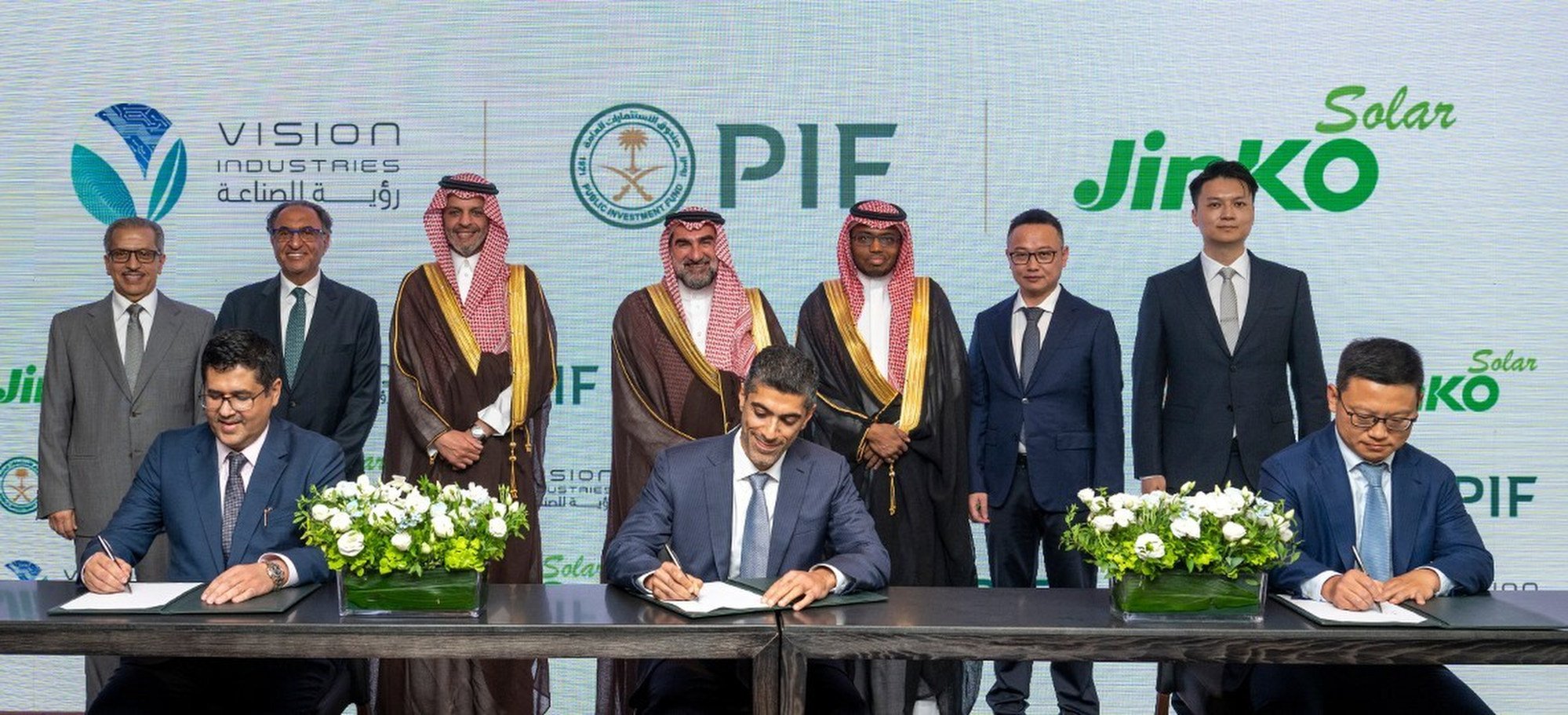3 Chinese clean-energy firms to set up solar, wind manufacturing in Saudi Arabia

“These projects will also enable Saudi Arabia to become a global hub for export of renewable technologies,” he said.
Jinko Solar said on Tuesday that it will build a US$985 million facility with an annual capacity of 10 gigawatts (GW) for both high-efficiency solar cells and solar modules. Saudi Arabia’s Vision Industries, a privately owned green energy developer, will also be a shareholder in the joint venture.
“This partnership is another major milestone in the execution of our globalisation strategy, and will further help us optimise our global manufacturing and marketing infrastructure, as well as enhance our global competitiveness,” Li Xiande, chairman and CEO of Jinko Solar, said in the statement.
Also partnering with PIF and Vision Industries, TCL Zhonghuan will invest US$2.08 billion in a plant capable of producing 20GW of photovoltaic silicon ingots and wafers a year, according to an exchange filing in Shenzhen.
Envision Energy’s joint venture with PIF and Vision Industries will involve the manufacture and assembly of wind-turbine components, with an estimated annual generation capacity of 4GW. Neither Envision nor PIF disclosed the investment amount.

Jinko Solar shares lost 4 per cent to close at 7.5 yuan on Wednesday after surging as much as 2 per cent on Tuesday in Shanghai after the announcement. Shares of TCL Zhonghuan lost 3 per cent to 8.73 yuan on Wednesday after gaining 5 per cent a day earlier. Shares of other major Chinese solar firms such as Longi and Tongwei also got a boost.
The three joint ventures represent the latest in a series of investments by Chinese clean energy developers to globalise their manufacturing bases as they are struggling with a price war and worsening oversupply.
By 2030 energy-related trade between the two sides will have risen by US$423 billion annually, with renewables and petrochemicals accounting for US$77 billion and US$325 billion, respectively, the investment bank estimated.
Source link



